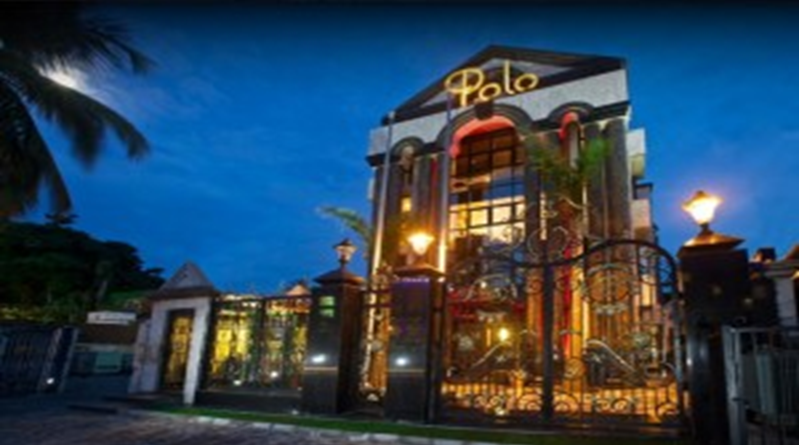Polo Luxury: Africa Gets Ready for its First Luxury E-Commerce Platform
Lagos is the Los Angeles of Africa. Home to a plethora of the continent’s rich and famous, gated communities, a thriving film industry nicknamed Nollywood, and the Motherland’s biggest consumers of champagne. A city where designer labels matter, the car you drive (or get chauffeured in) affects your social rank, and trendy hotspots are appearing on the scene on a constant basis (rumor has it, Dubai-based real estate firm Emaar is currently constructing a Nobu restaurant in the former Nigerian capital). Despite the financial hardships Nigeria is facing – largely influenced by the drop in crude oil prices – economists predict the country’s economy will grow a modest 1.3% over the year 2017. Devaluation of the local currency or not, local appetites for luxury fashion goods have remained seemingly unaffected.
When Nigeria’s well-heeled are in for a shopping spree without jetting off to London, they often turn to the services of Polo Luxury: The Nigeria-headquartered holding company which operates across the West Africa region through multiple luxury retail outlets. Founded by John Obayuwana in 1991, Polo is the only authorized retailer in the region for brands including Rolex, Hublot, Cartier, Gucci and Dolce & Gabbana.
“My father was the first to bring luxury to Nigeria 30 years ago. He had an amazing store on the mainland where he would sell Fendi watches and Patek Philippe. Watches are still our biggest and most valuable company asset,” Jennifer Obayuwana tells me. She’s Executive Director of the company founded by her father. Polo Limited is the main money maker inside the Polo Luxury entity. It’s specialized in retailing luxury watches, writing instruments and leather goods to a predominantly male audience. In 2014 another branch was added to the holding company: Polo Avenue, a brainchild of Jennifer Obayuwana, where luxury handbags, shoes and luggage take center stage. Located on Lagos’ more upscale Victoria Island, the store which opened its doors 3 years ago is a hidden gem inside the Polo Luxury headquarters’ first floor. Brands including Versace, Salvatore Ferragamo, Balenciaga, and newcomers such as Les Petits Joueurs and Giannico, are each part of the Polo Avenue mix.
“Nigerians are very brand-conscious, so it’s harder to sell an emerging brand. What we’ll do is, push these younger brands more via social media and then, of course, there is word-of-mouth. It can be tough at times as many clients just want to stick with the classic luxury brands. The established brands pretty much sell themselves. Right now the Gucci Dionysus bags are selling like hotcakes,” the Polo Luxury Executive Director explains.
Besides the Gucci, Polo Avenue’s main attraction is its founder and Polo Luxury Executive Director, Jennifer Obayuwana. Considered a local style icon and public figure, the young entrepreneur has amassed an Instagram following exceeding 130K. Said Instagram account embodies the type of affluent lifestyle that is a wet dream to plenty of millennials: an abundant collection of Hermès bags, an enviable designer wardrobe, trips overseas, the occasional helicopter ride, and summers in the south of France. On a yacht. A marketing strategy which has even garnered the attention of UK-based TV producers, who’ve approached Obayuwana in the past to collaborate on a Rich Kids-like television format. Obayuwana declined the offer.
While on the job, Obayuwana occasionally finds time to mix business with pleasure. Magic hour at Polo Avenue can happen any time between 3PM and 6PM. Bottles of champagne are being served to customers and friends of the luxury business, while a playlist consisting predominantly of Beyoncé tracks is featured in the background. For those who prefer something other than Perrier-Jouër, there is also the cocktail bar inside the Polo Avenue venue, where costumers may consume beverages from AM to PM.
Back to business. Despite Nigeria’s significant import tax on luxury goods, Obayuwana never allowed this to negatively affect the company’s pricing strategy. “Our prices are comparable to Europe. That’s the pricing model we’ve adopted as we don’t believe it is fair to penalize the client by piling up the costs. It means we just have to be more lean with our internal costs.”
“I’m happy about traffic. We’re seeing this emergence of upper-middle class Nigerians who spend $1,000 to $2,000 per visit on shoes and handbags. These are the clients that come back every month. Then there are also the high-net-worth individuals who may spend up to tens of thousands of dollars,” Polo Avenue’s founder says. Further elaborating on the company’s client profile, “We’re noticing an increase of African elite shopping here. African travelers from Angola or Congo for example who may travel here for business, and stop by to shop. Many of our clients are also foreign settlers who work here in the embassies. 80% Of our customers is male, regardless of the fact that 60% of the items sold through our retail network are male products versus 40% female products. Amongst that 40%, 20% consists of men buying for women. Age-wise our female clientele is between the ages 32 and 45, and guys between 40 and 55.”
Polo Luxury is currently in the process of building Nigeria-based mono-brand stores for Longine, Rolex and Cartier. The company is planning to take a similar approach with luxury fashion brands and will start retailing ready-to-wear goods this year. In other news, the Polo Avenue brand will get its feet wet in the world of e-commerce. The online shopping platform – which will be a first of its kind in Africa – is set to launch in March, and will ship throughout Africa.
“The e-commerce sector is rapidly gaining acceptance as a retail channel for luxury goods in emerging countries – especially Nigeria. Despite the infrastructural limitations, we decided to leverage on e-commerce to address the growing demand for luxury goods. The expectations of the typical African shopper are pretty high. From the latest and hottest luxury designers only found overseas, to our carefully packaged items, everything has been curated to give shoppers the feeling of shopping at an International high-end mall. The Polo Avenue website will offer a highly editorialized shopping experience. We also offer clients their own private concierge shopper who can select them items based on their tastes and needs. The average African shopper is a highly intelligent one, so we created a luxurious experience that can be viewed with a click of their mouse or their iPhones. In Nigeria we currently have e-tailers in the form of Jumia and Konga, serving the mass market. We are serving the luxury market,” Jennifer Obayuwana says with regards to ThePoloAvenue.com.
Besides offering the international luxury brands which Polo Avenue also retails offline, the company will make an unprecedented move in its digital chapter: sustaining fashion made by Africans, for Africans. “We will serve as a marketplace for some exclusive brands in Nigeria. Over the past 10 years, African designers have made significant contributions to the global fashion industry. Through our Polo Avenue fashion series, we will offer products from an emerging generation of African designers and offer them the platform to showcase their work, grow their clientele, and compete on a global scale.”




